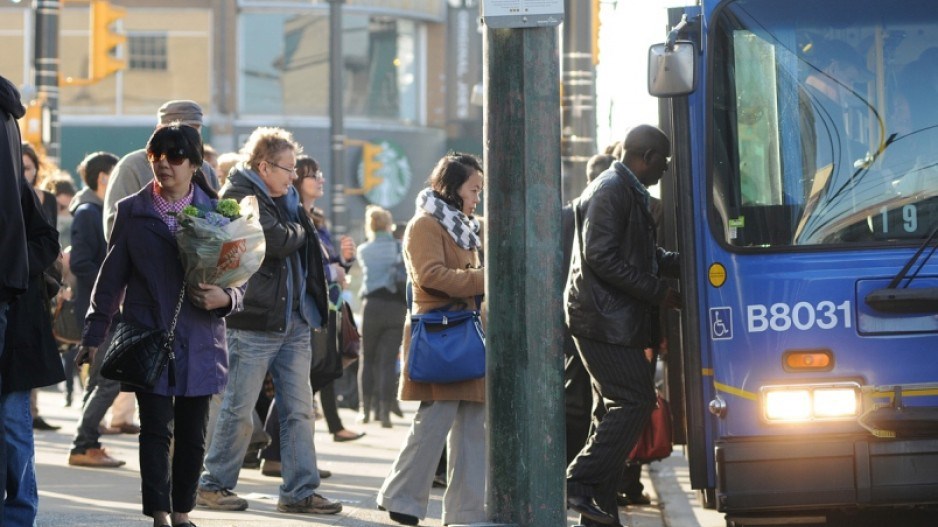TransLink is losing $75 million per month and faced with cancelling entire routes and reducing service levels on all transit modes, if it doesn’t receive some emergency funding from senior governments.
TransLink CEO Kevin Desmond described the situation as “dire” and anticipates far longer wait times and crowding of customers without an influx of cash to stabilize the region’s transportation network.
“We’ve done the best we can to keep essential services operating for those workers who need it to get to their workplaces, but we are losing $75 million per month, and on our current trajectory, we will face cash flow issues within weeks,” Desmond said in a news release issued Tuesday.
As the COVID-19 pandemic began to escalate in B.C., the provincial government deemed TransLink an essential service. However, since mid-March, the agency’s operating revenue has been cut in half because of reduced ridership and falling fuel tax revenue.
Fares on the bus system were also cancelled to promote physical distancing.
TransLink said emergency funding is required to “ensure a reasonable level of essential service can be maintained while respecting safe physical distancing requirements.”
Funding will also assist in a rapid transition to full service, if and when the economic recovery phase begins in the region and across the province, said the release, which included comments from New Westminster Mayor Jonathan Cote, who doubles as chairperson of the mayors’ council on regional transportation.
“We need an emergency funding package from the provincial or federal government, if reliable transit services are to continue for more than 75,000 people who will otherwise be left stranded,” said Cote, noting health-care, childcare and service workers rely on transit to get to work.
“Our transit system will also be critical during the COVID-19 recovery phase, and we must ensure that it’s able to quickly shift back to full service capacity when people start returning to work.”
Since the beginning of the pandemic, TransLink reduced bus service by 15 to 20 per cent and scaled back on SkyTrain, SeaBus and West Coast Express service.
Seating capacity was reduced on buses to promote physical distancing. Rear-door only boarding was put into effect, along with the suspension of fare collection to protect bus drivers from getting infected with the virus.
A scheduled fare increase was deferred.
TransLink also stepped up cleaning and sanitation on its network.
Ridership figures released March 19 showed system-wide decreases in boardings, including a 52 per cent drop on March 17 compared to the same day last year. That same day, which was St. Patrick’s Day, total Canada Line boardings dropped by 59 per cent over the previous day and year.
@Howellings




